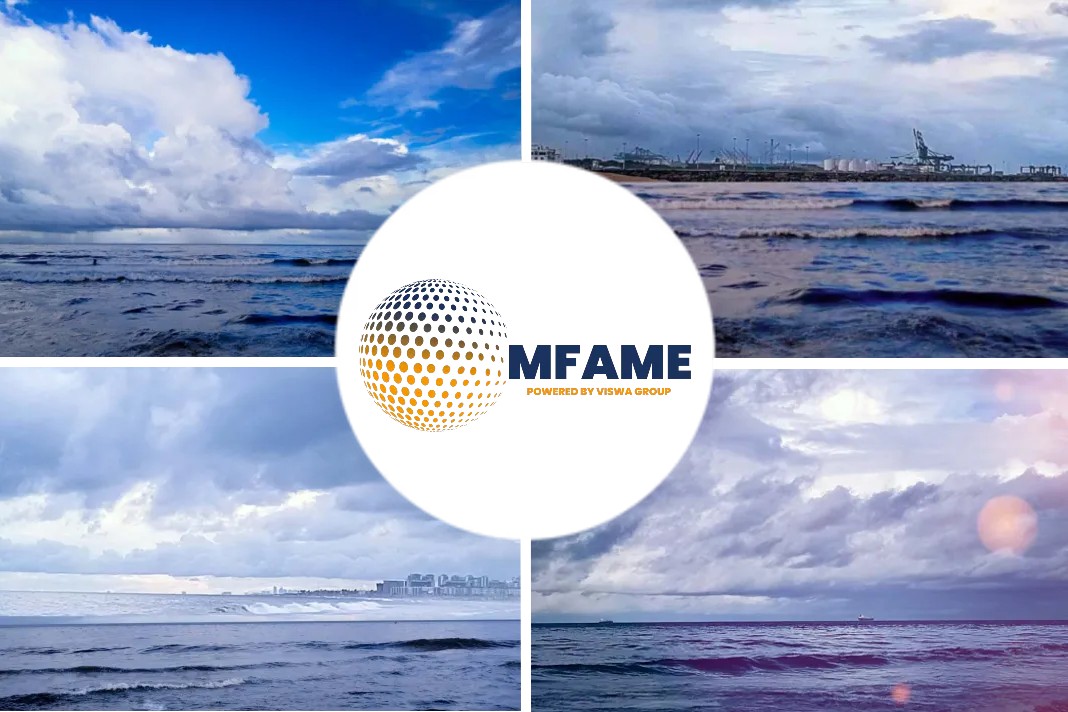A recent news published in the Business World by Andrew J. Masigan states that after 45 years, a Philippine shipping line goes international!
A bit of good news for all
We can all use a bit of good news at this time.
First, some context. Since the pandemic started, there has been a scarcity of cargo container vans and international shipping lines calling on Philippine ports.
This has caused our exporters to default on their delivery schedules.
Customers to withhold payments
The default, in turn, caused their customers to withhold payments triggering cashflow problems across the industry.
Meanwhile, exporters of perishable goods like fresh mangoes and bananas are suffering from rotting inventories due to their inability to leave the ports on time.
The scarcity of cargo vessels calling on Philippine ports has disrupted production schedules of companies that depend on imported components for their production lines (e.g., the electronics industry). It has also caused delays in the importation of the country’s essential goods such as rice, foodstuff, and construction materials.
Logistics woes of our importers and exporters
And here is the good news — the Department of Trade and Industry (DTI) and the Maritime Industry Authority (Marina) have worked decisively to relieve the logistics woes of our importers and exporters.
For the first time in 45 years, a container ship under the Philippine flag will make an international voyage to the United States. Not only will this ease the plight of our exporters, it is a precursor for an honest to goodness Filipino international cargo line going international.
Philippine logistic giant, Royal Cargo
Iris Logistics, Inc., a subsidiary of Philippine logistic giant, Royal Cargo, has invested in a fleet of three carrier vessels with a 1,100 TEU capacity, the largest in the country. On Sept. 23, the MV Iris Paoay made its inaugural voyage to Los Angeles.
This is a milestone in Philippine maritime history. Why? Because the prospect of having a Filipino international cargo line will free us from dependence on foreign shipping lines.
Shipping costs will significantly drop for Filipino traders thereby improving their margins.
More significantly, our exporters will no longer be subjected to oppressive destination charges (exorbitant add-on fees) which are unilaterally levied upon local importers by foreign shipping lines.
Shortage of container vans
What precipitated the shortage of container vans and international shipping lines calling on Philippine ports?
It all stems back to the pandemic. See, lockdowns here and around the world have caused acute disruptions to supply chains worldwide. Now that economies are slowly opening up, there is a mad rush for component and raw material suppliers to ship their goods to manufacturers. Similarly, there is a scramble for importers to replenish their inventories and a need to transport essential products like medical equipment, construction materials, and food across nations.
International shipping lines have taken advantage of the spike in sea cargo demand. With profit as a motivator, shipping lines have decreased their frequencies to low-volume ports and short-haul regional voyages. Instead, they channeled the lion’s share of their vessel capacity to long-haul routes between high-volume trading hubs (e.g., Shanghai to Rotterdam). The high demand allows them to charge premium rates on vessels which are full to capacity.
US Federal Maritime Commission
So serious is the problem that the US Federal Maritime Commission has cracked-down on the unfair trading practices of international shipping lines.
To ensure the stability of frequency and freight cost for Filipino traders, the DTI endorsed the establishment of a Filipino international shipping line for which Marina now seems willing to support.
For those unaware, Marina is the country’s regulator of maritime industries. It’s set of regulations are so antiquated that Marina only registers local shipping lines as either engaged in domestic trade or international trade, never both.
Philippine cabotage laws
Shipping lines registered for international trade must conform to Philippine cabotage laws. As such, they are prohibited from calling on Philippine ports unless it is an onwards shipment from a foreign destination. Other than that, domestic cargo is exclusively reserved for domestic shipping lines.
The specter of violating cabotage laws is the reason why Marina disallows local shipping lines from plying international routes while concurrently engaging in domestic shipping. This regulation has been the great stumbling block that prevents local shipping lines from going international.
The container crisis we are presently going through has prompted Marina to be more flexible. In a draft memorandum dated June 9 (no memorandum number yet), Marina has softened its stance and is now open to grant permission to certain local shipping lines to ply international routes.
Short of shipping conglomerates
Fortunately, we are not short of shipping conglomerates who are willing to invest in vessels for international routes. Iris Logistics and Chelsea Logistics are among them. The permit granted to Iris Logistics to sail to the US is good only for six months. It is a step in the right direction.
If there is anything this incident has taught us, it is that we must not be dependent on foreign shipping lines. Doing so makes us vulnerable in terms of stability of trade, food security, and national security. The Philippines must have its own shipping lines connecting our archipelago to the rest of the world.
That said, we ask Congress to pass the Philippine Registry of Ships Law so as to provide the legal framework for Philippine shipping lines to concurrently serve domestic and international routes.
Committee of Transportation of the House
The decision of Marina to allow a Philippine registered vessel to sail to Los Angeles without compromising its cabotage privileges is the first step towards breaking our dependence on international shipping lines. MARINA is showing more flexibility than it ever did before. Well done, Marina!
This development is a breakthrough for Filipino traders and the Philippine economy.
Did you subscribe to our daily newsletter?
It’s Free! Click here to Subscribe!
Source: Business World
















